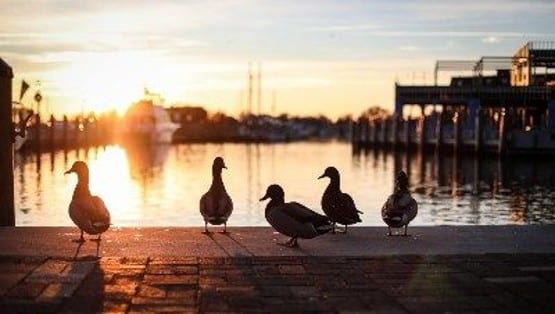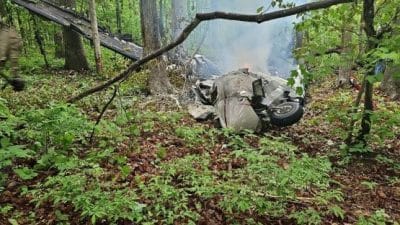
The Chesapeake Executive Council elected Maryland Gov. Wes Moore to serve as chair into the next phase of watershed restoration.
The council’s decision was made during its annual meeting at the National Arboretum in Washington, D.C. Moore assumes leadership of the federal-state Chesapeake Bay Program partnership from U.S. Environmental Protection Agency (EPA) Administrator Michael Regan, who has led the council for the past two years.
“I’m honored and deeply humbled to serve as the Chair of the Chesapeake Executive Council,” Moore said. “The Chesapeake Bay is part of who we are as Marylanders — and plays a vital role in our state’s environment and economy. Maryland is ready to take the lead on this important work, and we know we won’t be working alone. I am optimistic that if we take shared responsibility, hold each other accountable and follow the science—we can achieve our vision of a cleaner, healthier Bay for all.”
The bay program is celebrating 40 years, and has a target date of 2025 by which many of the outcomes under the current Chesapeake Bay Watershed Agreement the program will work to achieve.
Established 40 years ago after signing the first Chesapeake Bay Agreement, the council is responsible for guiding the policy agenda and conservation and restoration goals for the Chesapeake Bay Program, a regional watershed partnership. Members include the governors of Delaware, Maryland, New York, Pennsylvania, Virginia and West Virginia, the mayor of the District of Columbia, the chair of the tri-state legislative Chesapeake Bay Commission and the administrator of the EPA on behalf of the federal government.
Maryland Sen. Ben Cardin gave the keynote speech at the annual meeting, and reflected on his many years as an advocate for the Chesapeake Bay and supporter of the partnership. Cardin plans to retire at the end of 2024 after serving in the United States Senate for three terms.
“The Chesapeake Bay is a national treasure, an incredibly diverse and productive ecosystem and the economic and cultural heart of the Bay region. It has been a privilege to dedicate so many years of public service to its protection and restoration,” Cardin said. “Federal and regional partnerships have been crucial to the progress we have made in improving the health of the Chesapeake Bay. With Governor Moore as Executive Council Chair, I’m confident that these partnerships will continue in the future, and Maryland will continue to be a leader in Bay conservation.”
The council signed the Watershed Agreement in June 2014, which consists of 10 goals and 31 outcomes, a vision of fostering an environmentally and economically sustainable watershed with clean water, abundant life, conserved lands and access to the water, a vibrant cultural heritage, and a diversity of engaged residents and stakeholders.
Last year’s annual meeting provided direction for the Bay Program’s Principals’ Staff Committee with recommending a critical path forward that prioritizes and outlines the next steps for meeting the goals and outcomes of the Watershed Agreement. A steering committee was formed in early 2023 to work with subject matter experts in assessing the attainment of each of the 31 outcomes. New science and restoration strategies were also identified, as well as emerging issues and changing conditions in the watershed (e.g., climate change) that will impact the work of the partnership moving forward.
The results led to the council’s acceptance of three overarching recommendations to guide the partnership’s work through 2025.
“Since day one, my Administration has made the Chesapeake Bay a priority,” Virginia Gov. Glenn Youngkin said. “We have made historic and long overdue investments in support of a healthy Bay, funding an additional $600 million in water quality improvements just this year. While there is still much work to do, we are rebuilding the trust and collaboration with our agricultural community necessary to getting Virginia back on a track towards achieving realistic progress on our Chesapeake Bay goals and ensuring this resource is protected for generations of Virginians.”
Regan said the bay “is more than just an ecological national treasure; it is an economic engine for the Mid-Atlantic region and beyond. Under the Biden-Harris administration protecting and restoring the Bay has been a top priority, with historic investments from the Bipartisan Infrastructure Law and significant new partnerships to implement these unprecedented resources quickly and efficiently. With Governor Moore at the helm, EPA and all the partners of the Program are well-positioned for the next generation of conservation in the Chesapeake Bay.”










